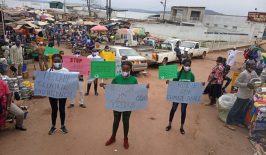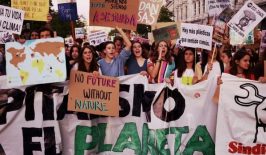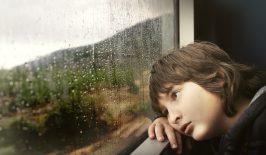No climate protection without climate justice! In the interview series “Voices of Climate Justice”, we’re investigating underreported perspectives from within the climate movement, in conversation with activists throughout the Global South. Here we talk to Iqbal Badruddin from Fridays for Future Pakistan about his worries and his hopes for the future and the deep interconnection between education and climate change.
Not only are people in the Global South often among the most vulnerable to rising global temperatures, but they are also climate activists, educators and changemakers – fighting for a better world, innovating and inspiring others to tackle the issues that we as a planet face. In this series of interviews with environmental activists from Latin America, Africa and Asia, we want to do our bit to decolonise the conversation around climate change and lift up the underrepresented voices within the climate movement. Find all of the interviews in this Voices of Climate Justice series right here.
In Interview #2 in this Voices of Climate Justice series, we talk to Iqbal Badruddin, founder of Fridays for Future Pakistan. Pakistan is in a challenging position. The country emits only a tiny portion of the global greenhouse gases, but it is also predicted to be among the hardest hit by extreme weather events, including droughts and floods, in the wake of climate change. And on top of all that, there is very little awareness about climate change in Pakistani society, and about the need to fight it and adapt to its effects.
We talk to Iqbal about Fridays for Future Pakistan’s work to raise awareness about the climate crisis, the role of digital and online media in their climate change education projects and the importance of bringing climate change into the school curriculum.
How did you first learn about climate change? Was it through the news, or is it already affecting you directly in Pakistan?
I first learned about climate change when I personally experienced extreme weather events in my country – in particular the floods of 2010 when the country faced huge economic damage. It hit the agriculture sector, which affected food production. It affected the whole country. This made me do research on extreme weather and climate change and now I aim to raise peoples’ awareness of it in my country.
How and when did you get involved in the student strikes? And what was your motivation?
Strikes are the backbone of this movement, but when it comes to Pakistan, doing weekly strikes means mobilising people who want to take action on climate change. But how could we find so many of them? Because according to a BBC report, 65% of the people in Pakistan don’t know what “climate change” means. So, we have demonstrated, but we focus more on raising awareness among the masses. We started striking from late December 2018, starting in different universities in Pakistan. This was mainly because we wanted draw everyone’s attention to the fact we are doing something for the planet that we have in common. The main motivation was that Pakistan is one of the most vulnerable countries to climate change, but we emit less than 1% of the total global greenhouse gases.
What do you see as the role of digital media in your own development as an activist?
Social and digital media was and will remain an important pillar for activism. Whatever we do, we convey our messages through them. Without them nothing positive is possible in an activist’s life. For me, digital media played an important role in shaping me and the campaign for the climate that I lead in Pakistan. Shaping the minds of people in Pakistan can be done through the use of media and we are doing our best to use this platform to reach as many people as possible.
How has the coronavirus affected your protest actions? Are you perhaps taking the protest online and if so, how are you doing it?
The pandemic has affected our physical protests in every respect. The social distancing guidelines have made it harder for us to protest during these times, so, to keep the momentum going we have switched to online protests. I feel that the online protests may not create as much impact as the street protests, but we have to keep putting pressure on the policymakers.
We are posting weekly protest pictures from our social media accounts and also, because FridayForFuture Pakistan focuses more on awareness, we are now also conducting online awareness sessions to educate people about climate change. We’ve also working on developing a virtual 5-day activist training session, which started recently.
What do you think we can learn from the coronavirus crisis and what are some positives you hope will come out of it?
The coronavirus crisis has taught us that we can make big changes in the way we live our lives. This is the same thing that the climate crisis has always demanded. The world has witnessed that anything is possible, all we need is the will to do it. Health is wealth and we need to make sure that whatever we do, it doesn’t harm the coming generations. COVID-19 has taught us that we can live balance our lives and nature and live in harmony with it – and also that we absolutely cannot survive without the natural world.
The Fridays for Future protests have been getting a lot of attention in the media – but that’s not translating into much action on the part of decision-makers. Why do you think that is?
Protests are meant to gain attention from the policymakers and our protests have made a fruitful impact overall but what is missing is climate action. Rather than taking action in advance, we always wait for the crisis to hit us and then we take action. And this is what is happening now. We aim to carry on with our strikes though, and keep bringing attention to the issue so that one day we might be able to make them implement green policies. We know this might take time, but we won’t give up.
What are the key messages behind your particular protest? What does your poster say when you hold it up? And who do you want to see it?
The main slogans on our poster are “Make Earth Great Again” and “Youth Climate Strike”. We want our policymakers and the international community to see our posters and protests so that they know we are concerned about ours and everybody’s future. The main goals of the Global Climate Strikes are to stop policymakers from investing money into environmentally unfriendly industries and also to help countries that are been impacted the most due to climate change. The government should make it compulsory for the schools to teach climate change, meaning that they should introduce a curriculum that is environmentally friendly. Our main message is to raise peoples’ awareness of climate change because here the majority of people are not aware of this crisis, and teaching people about climate change is the first step in fighting it.
What do you hope the Global Strike for Climate can achieve?
Well, the main message behind our protests is to wake the government and the international community up and encourage them to take action on climate change. Pakistan only emits a tiny amount of global greenhouse gases, but we are one of the countries most affected by climate change. We are a developing state and an agrarian economy and the fifth most vulnerable to climate change in the world. We demand, and we need, for people to pay attention.
Is there anything else you’d like our readers to know?
I would like to let the readers know that being a country that is one of the most vulnerable to climate change it is very tough to survive – the economy is another factor that makes a country vulnerable. And we all need to fight this common enemy together. I believe that one day we all will unite like we have come together against the COVID-19 crisis.
You can visit Fridays for Future Pakistan‘s website right here where you can find out more about the team and read their blog. Follow them at their official Twitter account to keep up to date with their (online) strikes and other activities. You can connect with Iqbal Badruddin directly right here.
Co-authored by Marisa Pettit and Jan Wisniewski








